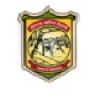How to become a Duty Manager
Overview, Courses, Exam, Colleges, Pathways, Salary

Overview
Who is Duty Manager ?
Duty managers are a kind of staff management role that may be found in a variety of businesses and settings. For example, if you work in a fitness centre, hotel, hospital, or another comparable workplace, being a duty manager may be an excellent opportunity to grow your career and enhance your skills and abilities. You may assess whether or not this profession is suited for you by learning about the position's duties and the qualifications to become one. This post will cover how to become a duty manager, clarify what this position entails, list the most common tasks and abilities required, and offer information on the typical income and career prospects for this position.
Duty managers are experts that are in charge of overseeing and coordinating the everyday activities of a company to maintain smooth operations. This might entail keeping an eye on the facilities, managing personnel, and dealing with consumer complaints or concerns. Duty supervisors are employed by a variety of industries, including Hotels, and other forms of hospitality Hospitals, Retail \sRestaurants, Wellness centres, or gyms are places where people may go to become healthy. Departments that provide customer service
Typical day at work
What does Duty Manager do?
- To Supervise organization, the efficiency of all processes of a business and proactively monitoring general operations.
- To Take initiative ensuring customers are satisfied and resolving conflicts and troubleshoot issues as they arise, employee interactions with customers should be positive.
- Handling customer and employee issues, ensuring that security and safety regulations are met, overseeing operations, maintenance, cleanliness and efficiency, work with management to assess and improve processes and policies, Train new hires.
- To uphold and enforce company policies, help management create the department’s budget, address employee complaints or performance issues as needed, keep track of monthly, quarterly and yearly goals, monitor and report on revenue and cash flow, address customer issues and complaints, Schedule shifts
- To Check in with employees regularly to determine satisfaction, meet regularly with upper management to stay informed on company issues, help management create the department’s budget, schedule regular maintenance and cleaning of facilities, oversee security of the facility.
Abilities and Aptitude needed
What are the skills, abilities & aptitude needed to become Duty Manager?
To become a duty manager, you'll need to have or learn a variety of talents. For example, duty managers commonly have expertise in cash management, credit processing, and point-of-sale systems since they work for firms where consumers regularly come and spend money, such as airports and hotels. New workers may also be taught how to use registers and handle money by duty supervisors.
Motivation: Because duty managers are in charge of a company's day-to-day operations, motivating themselves and their workers is essential for a productive workplace. Giving appreciation to employees, having a happy attitude, and assisting employees in understanding their own and corporate objectives are all examples of this.
Customer service: If there are any difficulties or inquiries, duty managers may deal directly with customers or be the first management on an escalation process. Active listening and empathy are two customer service qualities that may guarantee an excellent client experience and urge them to return.
Flexibility: Duty managers may be in charge of many departments, deal with various issues, and work varied hours each week. Their adaptability ensures that they can carry out their responsibilities in a variety of situations.
Problem-solving: Duty supervisors may be required to come up with innovative solutions to client and employee difficulties. This position requires the capacity to recognise issues, examine various solutions, and choose the most suitable one. Customers and employees may contact duty supervisors regularly. Clear communication may help ensure that employees are aware of their daily obligations, that new hires are properly trained, and that consumers are aware of rules.
Decision-making: Just as with problem-solving, duty managers may be required to make choices daily and frequently very rapidly. For example, if a staff member calls out for their shift, they may elect to summon another employee to work or determine that the staff can get by with only the current personnel.
Pathways
How to become an Duty Manager?
Entrance Exam
Entrance Exam for Duty Manager ?
Courses
Which course I can pursue?
Best Colleges
Which are the best colleges to attend to become an Duty Manager?
Industries
Which Industries are open for Duty Manager?
internship
Are there internships available for Duty Manager?
Career outlook
What does the future look like for Duty Manager?
Job opportunities in large hotels, small hotels, and independently owned hotels will open up as a result of becoming a duty manager. This job is considered an excellent career progression, and you will receive a slew of staff benefits, such as a discount card for products and services on campus, free entry to late-night events, and free Union Bus rides home. In addition, a higher rate of pay is expected and additional holiday pay.







